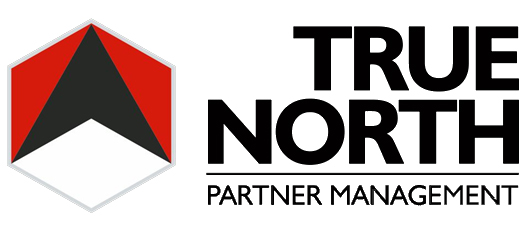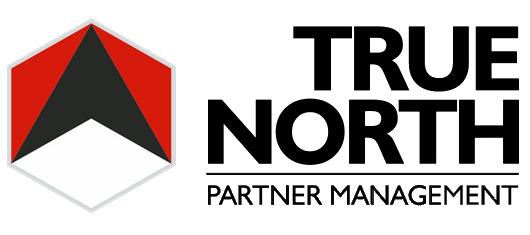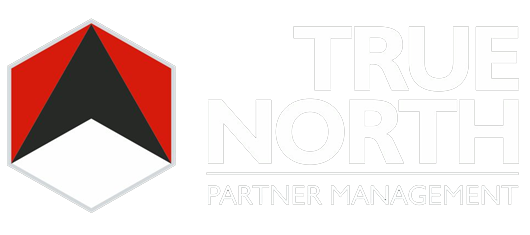The following post originally appeared on Forbes | January 25, 2016
When law firms are asked if in-house legal departments are their competition, the answer is usually the same: “No.” I suspect this response is measured, though. When you consider the many transfers occurring in today’s market – those of influence over fee setting, lawyers and matters moving in-house, and the diffusion of consumer-provider relationships, to name a few – I think the real answer is a bit more complicated. And taking a hard stand on the realities of today’s legal consumer-provider relational status can place an elephant in the room.
Helping beat the path toward in-house departments more clearly emerging as competitors is BT Law, an in-house division of BT Group plc that services external clients. With the receipt of an alternative business structure (ABS) license in 2013, the division was established to service corporate customers, initially in motor claims. And with their continued expansion, they now also provide for employer’s liability, employment law, and public liability claims.
While this practice mix isn’t competing directly with the Magic Circle, this type of business structure is an evolved addition to an ever-maturing legal landscape. Today we hear from Chris Fowler, general counsel UK Commercial Legal Services at BT Group plc, to discuss his thoughts on today’s legal market, law firm choice, advances in legal technology, and the innovative BT Law. See a revised and edited (for readability) version of our exchange below:
On His Top Pressure As A General Counsel
Parnell: If we could, let’s just start talking about some of the very high level pressures that you’re feeling as a general counsel; the top one or two most salient pressures that you’ve been experiencing?
Fowler: The key thing for me is the way in which the compliance agenda has become increasingly complex. It’s become ever more of a national patchwork quilt of quite detailed regulation. But you’re overlaying, fundamentally, a desire to do business on a global basis. The biggest high-level challenge out there right now is the fact that the internet has made communicating and doing transactions very simple, at a global level. The direction of some of the compliance challenges we have, whether it’s European data protection regulations , or human rights legislation, US HIPAA type regulations around health related data; or telecom’s regulatory provisions we see all over the world; you’ve just got this enormous patchwork of what, in many respects, is quite bespoke national compliance regulation. Yet there is the fundamentally overriding desire for people to do business in real time across borders.
On How He Chooses Law Firms
Parnell: So how does this affect your choice of law firms? There is quite a bit a stratification, and in some instances, fragmentation, occurring on the law firm landscape. While this gives general counsels more choices, it can make those choices more complex. I would think that for general counsel, it would be easier to get in bed with a large well-established global firm…
Fowler: That’s not a way I would recommend going forward for a number of reasons. Something that’s changed greatly over the last five years is the increased time and discussions we’re spending on how we manage the legal function, now. It’s not just how we manage our resources, but how we manage our skills, how we manage career development, how we manage technology, how we manage employee engagement. Fundamentally, a big part of that is that over the last two or three years, all of our lawyers have had to become more sophisticated buyers of service – either consciously or unconsciously.
If you look at an organization like BT, then at a very simplistic level, we might need to use law firms for a personal injury matter if someone, for instance, injures themselves on property we are responsible for. But on the other hand, our legal requirements go right through to analyzing whether we’ve got any issues under trade treaties, in terms of whether we have fair and equal access into international markets we want to grow into. For me, a one size fits all doesn’t work because what you really want is a better articulated buying strategy.
With the way we’ve evolved, we started off life with quite a rigid panel to drive economies of scale from rates. We then moved to a network. And right now we’re evaluating our strategy. So my sense is that it will fall into two buckets: One that I call “capacity,” meaning those areas that our internal legal team can’t handle within their resource profile or within the current priorities of the business. And one I call “expertise,” and that’s where you’re buying specific judgments, specific outcomes that don’t exist internally – that could be specific laws on pension liability, specific provisions around the impact of the data security landscape, post-Snowden.
To sum up, moving forward we’ll be looking at things from an “expertise” and “capacity” end, which will ultimately drive the decision as to who is the best firm to do the best particular task, given those two broad parameters. Because from a capacity perspective, there are lots of new providers setting up in the UK due to the way in which the legal services market has been deregulated. And there are all sorts of organizations out there who we’re working with that we probably wouldn’t have three or four years ago because they’re servicing a particular need. Similarly, if we do something material, you’re always going to be looking to certain firms who can give comfort to the corporation and the people who are responsible for its custodianship. That’s where the Magic Circle firms in the UK come into their own, because at a certain level, with a company of our size, the custodians of the business will expect certain matters to receive attention at a certain level.
On How His General Counsel Role Has Changed Over The Years
Parnell: So how has your role as GC evolved along with the market?
Fowler: It’s far more outcome driven now, if that makes sense. It’s a given that the work will get done. The thing that’s changed now is the increased focus on how you can make it better. I often take a bit of a sigh at the end of our financial year and think “We got through that one. What are we going to do for the next one?” That’s self-brought on, though. It’s also generally brought on by the fact that legal functions have had to face up to the realities that their business colleagues have had to face for a long time: That you’ve got to deliver on your commitments. If one of your primary commitments is to stay within budget, or to deliver year on year savings, that is your starting position as to whether or not you get the opportunity to carry on determining your own destiny.
On Preventative Law
Parnell: I’m assuming that you have heard of Richard Susskind and his take on preventative law. What are your thoughts on that? Do you see in-house entities eventually moving more towards a preventative law type of scenario?
Fowler: Yes I do. It goes to the one thing he says that really resonates with me, which is that most CEOs want the lawyers to stop something going over the cliff. They don’t want their lawyers picking things up at the bottom of that cliff, once things have already gone over it. My view is that, again, if you look at where the trends are going, data, computing, and processing power is enabling us to do things — especially in areas like commercial and litigation — in a far quicker and more process-driven way than was possible a few years ago.
Something that really bothers me, and this harks back to what we discussed at the beginning of the call, is some of the compliance-type issues that are out there. You could turn those over, and you could uncover something serious, despite it looking innocuous initially. Actually, it goes to the value of the business, not just on a day-to-day basis, but in terms of its standing in the market. If you have a huge compliance issue, it can undermine customer confidence and the stock price in a significant way. That’s in a way which getting one routine transaction not perfect, could never do.
On His Seat At The Business Table
Parnell: How has your role at the business table changed? From my perspective, GC’s are brought ever further into the inner fold of the C-suite, and they are much more involved in business decisions. Has that been your experience?
Fowler: That’s absolutely the case. We’re very fortunate in BT in that we’ve always been a key part of the governance process. You can’t get a transaction done unless you’ve got three sign-offs, one of which is legal. In an odd kind of way, although that’s sometimes been a challenge for us, it’s meant that we’ve probably been integrated a lot longer than perhaps other people are talking about in the broader market, because , we’ve had a veto. But we’ve had to be selective about how to use that — you don’t want to be business prevention; you want to actually help the corporation that your part of.
So yes, my sense is that that’s a fair assessment. But we’ve been fortunate in that we’ve been embedded for some time in our organization because of our governance process. What’s perhaps changed now is an acceptance that you need to get legal involved earlier in some of these issues, which don’t actually become issues unless you ask the right questions at the outset.
On Technology Within BT
Parnell: If you could, talk to me about some of the technologies that BT is using or has implemented to make your department more fiscally responsible and efficient.
Fowler: We’re in the process of implementing our own case management system called Tikit. The idea there is that it’s going to enable us to work a lot more consistently and a lot more efficiently across the globe as a single community.
We came from a hard drive culture and now we’re trying to drive a consistency of approach, a consistency of knowledge management, a consistency of process, and consistency of management information through that. We also work closely with Axiom, and we use their IRIS system, which is a pretty interesting system. It gives us insight into how quickly things are being done, and where the roadblocks are.
For me, the whole legal technology issue is fascinating in a number of areas. Because if you look at transactions, they are by and large data points – they all start off in one place and end up at another. We’ve only just started really dabbling in terms of how far that can take us. I’ve got a view – and people sometimes look at me as if I’m slightly crazy when I say this – but, just as when we first started using chess machines, people would look at them bizarrely: two chess machines playing chess against each other. Ultimately, there’s no reason why two computers couldn’t negotiate a contract if people initially had come up and accepted the premise that there was going to be a trade-off between risk and price. So if you turn around to someone and say that instead of this taking weeks or months, and not being clear whether you’re going to bank the benefits in your fiscal cycle, this is now going to take a matter of minutes. And if you get the engagement right at the right level, that’s something which is quite exciting.
On Artificial Intelligence
Parnell: I recently did a piece with Stephen Immelt [CEO] of Hogan Lovells, and he said that he doesn’t see that happening any time soon – an algorithm taking over the negotiation of a merger, as an example.
Fowler: Yes, I agree with that. There are always going to be those huge, international, big corporate transactions where this won’t lend itself to it, where you’ve got external funding, regulatory clearances, etc. But where you’re talking about regular business to business contracts — and there are millions of those — technology is driving me to ask what’s the value of a negotiation? You can see it in most business contexts that certain activities have “this” cost or deliver “this” margin, but how can we better articulate the value of a contract negotiation? Just accepting it will require people to work all night as a matter of course; that’s depressing to me.
As an in-house counsel you can never really be definitive on how much value there is in a negotiation because you can never turn around subsequently and say “because we negotiated that, we didn’t suffer X, Y, and Z. ” It’s contingent on other things happening.
One of the things that we’re looking at right now is what the business impact would be if we could bring all of our transactions forward by ten percent. In my view, it’s not the reduction in the transaction time that’s transformational, it’s the fact that you can move on to the next deal more quickly, and over the course of a year do that multiple times which is quite interesting.
On The Origins Of BT Law
Parnell: Talk to me about BT law. What a phenomenal idea: Turning what is traditionally an expense, into a profit center. Talk to me about that.
Fowler: Effectively, how it came about was actually through another adjacent business in BT. So BT has a lot of vehicles in the UK which help BT maintain its telecoms network. And over a period of time, because of the coverage of the maintenance network, we found we started to pick up third-party business; other people who ran large fleets would come to us. Over a period of time, those customers started saying how good it would be if we could manage when those cars have accidents, and how good it would be if we could help out when there was subsequent litigation.
Now the regulatory regime has changed; it allows, non-lawyers to own law firms though an ABS license which allows us to provide legal services to third parties through BT Law Limited. Over a period of time, our insurers, auditors, and brokers were telling us that they thought we had some good processes and that we were good compared with what they were seeing elsewhere so they encouraged us to capitalize on this.
We also have a different approach to some of the standard service providers in this space in that we manage the risk from start to finish. That means we can support the aftermath of an incident and we can manage the litigation process if it gets that far. Our philosophy is also key: We understand the wider business implications of how claims management works and the impact on brand and reputation.
Basically, what we’re doing is to second a number of the BT lawyers into BT Law Limited, which is a separate company with its own board, its own finance director, and its own compliance officer. Although BT is still its largest customer, we’re making inroads into areas such as the motor-claim space, the plant-damage space, and moreover, employer law advice, generally.
On The Trajectory Of Providing Legal Services From In-House
Parnell: Taking this one step further, and assuming that things continue to go well, could you see, in essence, BT Law being like another outside law firm – providing the same services, but just owned by British Telecom?
Fowler: Personally, I’m not sure; because what’s driven us to date is a customer need in the marketplace which we believe we can uniquely fill. It is really interesting because when we talk about it, you don’t do so as if it’s a law firm, even though it is. Instead, you talk about it in terms of an organization that provides services to customers. The key thing for us is to build capability against a customer need, which we think we can make a difference in meeting.
Parnell: This may simply be semantics, but if you go back to the origins of law firms, that’s exactly how they started out.
Fowler: Exactly. You are absolutely right. And the ABS market at the moment is quite challenged in the UK. There are some people that have come in, but there’s still a certain amount of skepticism in the market as to which organizations are going to do well. It’s no coincidence that three of the Big Four accountancy firms have all got ABS licenses. There are some serious players in there, and it’s going to be interesting to see the impact it has on the entire market. There have been some high profile failures, but it’s an exciting place to be right now.
On The Attributes Of A Great Lawyer
Parnell: So without naming names, could you describe for me the attributes of your most trusted legal advisors? One or two men or women you have in mind that you think are the best of the best. And in a complete and utter bet-the-farm scenario, these are the people that you would want to have handling things. What are some of the top attributes they possess that make you think about them that way?
Fowler: Most external lawyers I meet excel at knowing the law. It’s the application of the law and the ability to anticipate the natural consequences of a course of events and act accordingly which really makes certain individuals stand out. With some people I’ve used on specific projects, it’s not only been that ability to really bring a situation to life and demystify it, but also their ability to think three or four steps ahead.
It sounds a bit trite, but it’s the confidence to know they will deliver an end product, on time, that you can pick up and use when you go back to the office. They’re not just presenting you with a beautifully crafted problem; they are providing a well thought through way forward.
On If He Started His Own Law Firm
Parnell: If you could build your own law firm from scratch, what would it look like?
Fowler: I think there are two main things – and this wouldn’t apply for every market. So it wouldn’t apply for a top-tier Wall Street firm or a Magic Circle firm in London – but to me the real opportunity in the mid-market is for organizations that really embrace technology, in terms of embedding it into the services that they provide to their clients. They would use the data that they’ve got in an intelligent way, since law firms have such a huge amount of data. I’ve got a view that they don’t mine that enough. I’m sure if Google or anyone else had access to the level of data law firms have got, they’d work out a way to commercialize it.
It’s really obvious when the law firm is putting your problem ahead of anything else. I’m always impressed with certain firms we’ve worked with. The good ones work the canteen; they’re not focused on extracting every penny out of every billable hour. They’re working the organization and they’re understanding what the problems are, what the things are that are bothering people, and proactively offering solutions to address that. So in my view, I think it’s a combination of technical expertise, technology, data, and empathy which are key enablers, as well as a genuine understanding of the business drivers and priorities.
If you work in a corporate organization, the starting point of most commercial entities is to ask what the impact is on the bottom line. Sometimes it’s more than the impact on the bottom line; if it’s a criminal matter, for instance, or if it’s a reputational matter. But more often than not most issues do start from what the impact is. It’s a risk assessment. Being able to really differentiate between those two is pretty fundamental.
On Skillset Development
Parnell: Lastly, if you were starting over — let’s say that you were just graduating law school — what would you do with yourself? How would you focus the development of your skill-set in today’s market?
Fowler: One thing I get frustrated about is how the current training doesn’t prepare lawyers for what they need to be successful as their careers develop and they become more senior. No one ever tells students at university or in training that they really need to work on their emotional intelligence, their empathy, their ability to anticipate, or leadership style. Whenever you meet a CEO, they always start with the other person’s perspective and work back from that. The absence of this training and awareness is something which is not helping the profession, period.
At the moment we’re developing people who have great analytical skills. But what we’re not doing is preparing them for that transition they have to make at a certain level of seniority when they transition from pure case work to inspiring a team, developing a business, understanding cost models, and shifting their emphasis, if they’re going to be successful at the next stage of their careers. I do not think the legal industry is preparing people as well as it could, for that change.
Email: dparnell@davidjparnell.com Twitter: @davidjparnell
Books: The Failing Law Firm: Symptoms And Remedies; In-House: A Lawyer’s Guide To Getting A Corporate Legal Position



